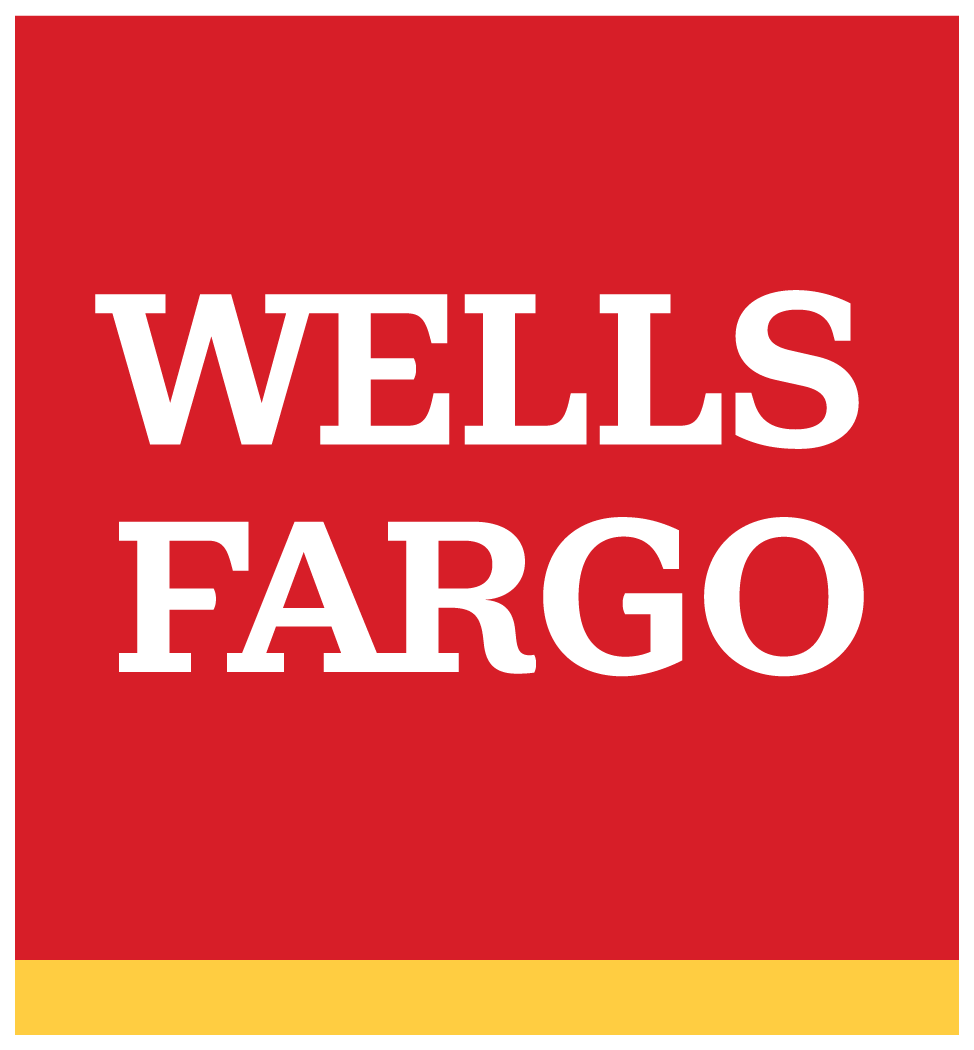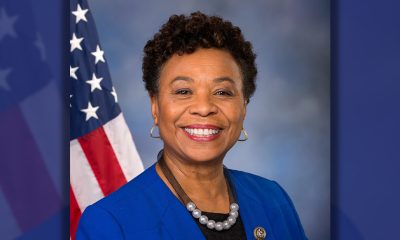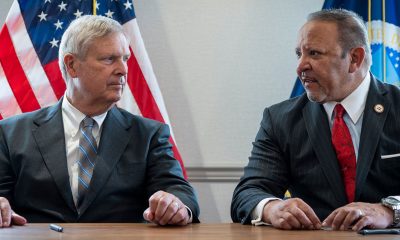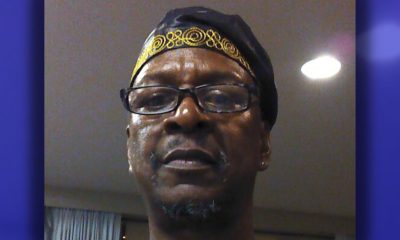Business
Wells Fargo Launches Banking Inclusion Initiative to Help Unbanked
African Americans, Latinos, Native Americans Get Access yo Low-Cost Banking

On Monday, Wells Fargo announced the Banking Inclusion Initiative, a 10-year commitment to help unbanked individuals gain access to affordable, mainstream, digitally-enabled transactional accounts – a meaningful entry point to fully participating in the economy and achieving financial stability.
The initiative will focus on reaching unbanked communities and, in particular, helping remove barriers to financial inclusion for Black and African American, Hispanic, and Native American/Alaska Native families, which account for more than half of America’s 7 million unbanked households1. It also will assist those who are underbanked or underserved – individuals who may have a bank account yet continue to use high cost, non-bank services and have similar needs.
Wells Fargo will bring together multiple national and community stakeholders to roll out the broad-based initiative that is designed to increase access to affordable products, digital banking and financial guidance within unbanked communities. Through this initiative, Wells Fargo also will collaborate with partners to explore solutions to the credit challenges facing unbanked individuals.
This year, the bank will work with partners to set and begin measuring a 10-year goal for reducing the number of people who are unbanked, with milestones along the way.
According to 2019 FDIC data1, 12.2 percent of Hispanic households, 13.8% of Black households, and 16.3% of American Indian/Alaska Native households in the U.S. don’t have access to a mainstream checking account – compared with 2.5% of white and 1.7% of Asian households.
The FDIC also reports that while these figures have been trending downward, the number of unbanked households will likely increase in the aftermath of the ongoing COVID-19 pandemic.
“We recognize the high number of unbanked households is a complex and long-standing issue that will require gathering the best minds, ideas, products and educational resources from across our communities to bring about change,” said CEO Charlie Scharf. “Through our Initiative, we will organize our resources under one umbrella and work with a broad and diverse group of stakeholders on a sustained multi-year effort to accelerate financial inclusion in the U.S.”
The commitment will be organized around three areas:
1. Access to Affordable Products and Digital Solutions
Wells Fargo will deepen its existing relationships with Black-owned Minority Depository Institutions (MDIs) to support their work in the communities they serve, including outreach efforts and providing the option for their customers to withdraw cash from Wells Fargo’s ATMs and incur no Wells Fargo fees. In addition, Wells Fargo is offering access to a dedicated relationship team that will work with each MDI on financial, technological and product development strategies to help strengthen and grow their institutions.
· In recognition that unbanked and underbanked individuals need access to short-term credit, Wells Fargo will increase funding and support to expand the Credit Builders Alliance (CBA) low-cost, credit-building consumer loan program. The organization’s CBA Fund will provide patient loan capital, capacity-building grants and technical assistance to their nonprofit lender members, enabling low-cost consumer loans for low- to moderate-income (LMI) individuals to meet short term cash needs and establish or improve their credit scores.
Wells Fargo will increase awareness and outreach about low-cost, no–overdraft fee accounts, such as Wells Fargo’s Bank On-certified Clear Access Banking.
· Wells Fargo will broaden its collaboration with CFE Fund and local Bank On coalitions to pilot new strategies and approaches that help overcome barriers to banking access in several markets with high concentrations of unbanked households. The program will focus on helping those who are unbanked navigate the financial system, develop an easier, more seamless path for them to open a Bank On-certified account and access services they need within mainstream banking. It will be used to identify best practices that can be applied on a national scale.
· Wells Fargo will work closely with Fintechs that are deeply committed to helping underserved communities. For instance, Wells Fargo is among the investors in Greenwood, a digital platform for Black and Latino individuals and business owners. The bank also has started a collaboration to help the Fintech MoCaFi provide banking to unbanked individuals, starting with offering MoCaFi customers the ability to use their MoCaFi debit card at Wells Fargo ATMs without incurring fees from Wells Fargo.
2. Financial Education and Advice
·
· Wells Fargo is working with the Historically Black Colleges and Universities (HBCUs) Community Development Action Coalition to launch Our Money Matters, a comprehensive financial wellness initiative for college students of color, who disproportionally face greater financial challenges and college debt. The initiative aims to equip students with much needed financial capability skills and access to support services. Over the next 3 years, the program will expand to 25 HBCUs and Minority Serving Institutions.
3. Launching National Advisory Task Force
· Recognizing the difficulty of addressing the unbanked issue in the U.S., Wells Fargo will establish and lead a broad coalition to help with this multi-year commitment. Wells Fargo is forming a National Unbanked Advisory Task Force that will work with the bank in developing solutions to bring more people into the banking system from underserved communities, while also providing feedback on the initiatives that will be implemented and helping determine the best ways to measure success. The task force will feature representatives from leading organizations, including LULAC (League of United Latin American Citizens), NAACP (National Association for the Advancement of Colored People), National Bankers Association, NCAI (National Congress of American Indians), UnidosUS, National Urban League, and Mississippi-based Hope Enterprise Corporation.
“With branches in more communities than any other financial institution, we believe we have a responsibility to do even more to help address this issue and the pandemic has increased the urgency,” said Mary Mack, CEO of Consumer and Small Business Banking at Wells Fargo. “It is why we’re launching this comprehensive initiative. It is our hope, working closely with our partners, we will be able to make a difference over time in addressing such a critical problem for our society.”
Edith Rocío Robles is an assistant vice president for Corporate Communications.
Activism
Oakland Post: Week of April 24 – 30, 2024
The printed Weekly Edition of the Oakland Post: Week of April 24 – 30, 2024

To enlarge your view of this issue, use the slider, magnifying glass icon or full page icon in the lower right corner of the browser window. ![]()
Bay Area
State Controller Malia Cohen Keynote Speaker at S.F. Wealth Conference
California State Controller Malia Cohen delivered the keynote speech to over 50 business women at the Black Wealth Brunch held on March 28 at the War Memorial and Performing Arts Center at 301 Van Ness Ave. in San Francisco. The Enterprising Women Networking SF Chapter of the American Business Women’s Association (ABWA) hosted the Green Room event to launch its platform designed to close the racial wealth gap in Black and Brown communities.

By Carla Thomas
California State Controller Malia Cohen delivered the keynote speech to over 50 business women at the Black Wealth Brunch held on March 28 at the War Memorial and Performing Arts Center at 301 Van Ness Ave. in San Francisco.
The Enterprising Women Networking SF Chapter of the American Business Women’s Association (ABWA) hosted the Green Room event to launch its platform designed to close the racial wealth gap in Black and Brown communities.
“Our goal is to educate Black and Brown families in the masses about financial wellness, wealth building, and how to protect and preserve wealth,” said ABWA San Francisco Chapter President LaRonda Smith.
ABWA’s mission is to bring together businesswomen of diverse occupations and provide opportunities for them to help themselves and others grow personally and professionally through leadership, education, networking support, and national recognition.
“This day is about recognizing influential women, hearing from an accomplished woman as our keynote speaker and allowing women to come together as powerful people,” said ABWA SF Chapter Vice President Velma Landers.
More than 60 attendees dined on the culinary delights of Chef Sharon Lee of The Spot catering, which included a full soul food brunch of skewered shrimp, chicken, blackened salmon, and mac and cheese.
Cohen discussed the many economic disparities women and people of color face. From pay equity to financial literacy, Cohen shared not only statistics, but was excited about a new solution in motion which entailed partnering with Californians for Financial Education.
“I want everyone to reach their full potential,” she said. “Just a few weeks ago in Sacramento, I partnered with an organization, Californians for Financial Education.
“We gathered 990 signatures and submitted it to the [California] Secretary of State to get an initiative on the ballot that guarantees personal finance courses for every public school kid in the state of California.
“Every California student deserves an equal opportunity to learn about filing taxes, interest rates, budgets, and understanding the impact of credit scores. The way we begin to do that is to teach it,” Cohen said.
By equipping students with information, Cohen hopes to close the financial wealth gap, and give everyone an opportunity to reach their full financial potential. “They have to first be equipped with the information and education is the key. Then all we need are opportunities to step into spaces and places of power.”
Cohen went on to share that in her own upbringing, she was not guided on financial principles that could jump start her finances. “Communities of color don’t have the same information and I don’t know about you, but I did not grow up listening to my parents discussing their assets, their investments, and diversifying their portfolio. This is the kind of nomenclature and language we are trying to introduce to our future generations so we can pivot from a life of poverty so we can pivot away and never return to poverty.”
Cohen urged audience members to pass the initiative on the November 2024 ballot.
“When we come together as women, uplift women, and support women, we all win. By networking and learning together, we can continue to build generational wealth,” said Landers. “Passing a powerful initiative will ensure the next generation of California students will be empowered to make more informed financial decisions, decisions that will last them a lifetime.”
Business
Black Business Summit Focuses on Equity, Access and Data
The California African American Chamber of Commerce hosted its second annual “State of the California African American Economy Summit,” with the aim of bolstering Black economic influence through education and fellowship. Held Jan. 24 to Jan. 25 at the Westin Los Angeles Airport Hotel, the convention brought together some of the most influential Black business leaders, policy makers and economic thinkers in the state. The discussions focused on a wide range of economic topics pertinent to California’s African American business community, including policy, government contracts, and equity, and more.

By Solomon O. Smith, California Black Media
The California African American Chamber of Commerce hosted its second annual “State of the California African American Economy Summit,” with the aim of bolstering Black economic influence through education and fellowship.
Held Jan. 24 to Jan. 25 at the Westin Los Angeles Airport Hotel, the convention brought together some of the most influential Black business leaders, policy makers and economic thinkers in the state. The discussions focused on a wide range of economic topics pertinent to California’s African American business community, including policy, government contracts, and equity, and more.
Toks Omishakin, Secretary of the California State Transportation Agency (CALSTA) was a guest at the event. He told attendees about his department’s efforts to increase access for Black business owners.
“One thing I’m taking away from this for sure is we’re going to have to do a better job of connecting through your chambers of all these opportunities of billions of dollars that are coming down the pike. I’m honestly disappointed that people don’t know, so we’ll do better,” said Omishakin.
Lueathel Seawood, the president of the African American Chamber of Commerce of San Joaquin County, expressed frustration with obtaining federal contracts for small businesses, and completing the process. She observed that once a small business was certified as DBE, a Disadvantaged Business Enterprises, there was little help getting to the next step.
Omishakin admitted there is more work to be done to help them complete the process and include them in upcoming projects. However, the high-speed rail system expansion by the California High-Speed Rail Authority has set a goal of 30% participation from small businesses — only 10 percent is set aside for DBE.
The importance of Diversity, Equity and Inclusion (DEI) in economics was reinforced during the “State of the California Economy” talk led by author and economist Julianne Malveaux, and Anthony Asadullah Samad, Executive Director of the Mervyn Dymally African American Political and Economic Institute (MDAAPEI) at California State University, Dominguez Hills.
Assaults on DEI disproportionately affect women of color and Black women, according to Malveaux. When asked what role the loss of DEI might serve in economics, she suggested a more sinister purpose.
“The genesis of all this is anti-blackness. So, your question about how this fits into the economy is economic exclusion, that essentially has been promoted as public policy,” said Malveaux.
The most anticipated speaker at the event was Janice Bryant Howroyd known affectionately to her peers as “JBH.” She is one of the first Black women to run and own a multi-billion-dollar company. Her company ActOne Group, is one of the largest, and most recognized, hiring, staffing and human resources firms in the world. She is the author of “Acting Up” and has a profile on Forbes.
Chairman of the board of directors of the California African American Chamber of Commerce, Timothy Alan Simon, a lawyer and the first Black Appointments Secretary in the Office of the Governor of California, moderated. They discussed the state of Black entrepreneurship in the country and Howroyd gave advice to other business owners.
“We look to inspire and educate,” said Howroyd. “Inspiration is great but when I’ve got people’s attention, I want to teach them something.”
-

 Activism4 weeks ago
Activism4 weeks agoOakland Post: Week of March 27 – April 2, 2024
-

 #NNPA BlackPress4 weeks ago
#NNPA BlackPress4 weeks agoBeloved Actor and Activist Louis Cameron Gossett Jr. Dies at 87
-

 Community1 week ago
Community1 week agoFinancial Assistance Bill for Descendants of Enslaved Persons to Help Them Purchase, Own, or Maintain a Home
-

 Activism3 weeks ago
Activism3 weeks agoOakland Post: Week of April 3 – 6, 2024
-

 Business2 weeks ago
Business2 weeks agoV.P. Kamala Harris: Americans With Criminal Records Will Soon Be Eligible for SBA Loans
-

 Activism2 weeks ago
Activism2 weeks agoOakland Post: Week of April 10 – 16, 2024
-

 Community2 weeks ago
Community2 weeks agoAG Bonta Says Oakland School Leaders Should Comply with State Laws to Avoid ‘Disparate Harm’ When Closing or Merging Schools
-

 Community7 days ago
Community7 days agoOakland WNBA Player to be Inducted Into Hall of Fame


























































